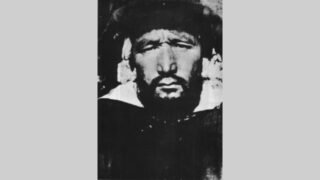Serikzhan Bilash, the leader of the NGO Atajurt, denounced the mistreatment and torture of 10,000 ethnic Kazakhs in the “transformation through education” camps.


Massimo Introvigne
Last week, Bitter Winter reported extensively on the fate of the ethnic Kazakh Muslim minority in Xinjiang. 10,000 Kazakhs are detained in the dreaded “transformation through education camps.” We also reported on the activities of the NGO Atajurt, which exposed instances of torture, suicide, and extra-judicial killing of Kazakhs in the Xinjiang camps. And we mentioned how the Kazakh government was skating on thin ice, supporting the CCP in public in the name of Kazakhstan’s crucial economic ties with China, and negotiating in private the release from the camps at least of those who hold two passports, one Kazakh and one Chinese.
The situation took a turn for the worse on Sunday. As reported by Foreign Policy, Serikzhan Bilash, the leader of Atajurt, was arrested in the early hours of the morning. Fearing for his safety, he had moved from his home to a hotel in Almaty. Atajurt activists released videos of his hotel room ransacked and with blood stains on the floor. The authorities confirmed that Bilash was transferred to the capital Astana and charged with “inciting hatred.”
Perhaps because of the widespread protest by human rights activists, he has now been released from jail and placed under house arrest awaiting trial. Journalist Chris Rickleton of France-Presse tweeted about a parallel raid in the offices of Atajurt.
Star human rights lawyer Aiman Umarova, who also represents Sayragul Sauytbay, a Kazakh woman who escaped the “transformation through education” camps and fled with a false passport to Kazakhstan, where she was initially arrested and then released, has taken over the legal representation of Bilash, although the authorities initially tried to prevent her from accepting the case.
Last week Dr. James Dorsey of Singapore’s Nanyang Technological University published an article on the “limited results” of Kazakhstan’s silent diplomatic effort on behalf of the Kazakhs detained in the camps. The crackdown on Atajurt also proves what happens when states become part of the Chinese Belt and Road Initiative, as Kazakhstan did. Officially, Belt and Road has nothing to do with human rights. In practice, the price to pay for Belt and Road is to silence criticism of Chinese anti-human-rights atrocities.








